Neurodevelopmental disorders
Recent articles
Largest leucovorin-autism trial retracted
A reanalysis of the data revealed errors and failed to replicate the results.

Largest leucovorin-autism trial retracted
A reanalysis of the data revealed errors and failed to replicate the results.
New organoid atlas unveils four neurodevelopmental signatures
The comprehensive resource details data on microcephaly, polymicrogyria, epilepsy and intellectual disability from 352 people.

New organoid atlas unveils four neurodevelopmental signatures
The comprehensive resource details data on microcephaly, polymicrogyria, epilepsy and intellectual disability from 352 people.
Constellation of studies charts brain development, offers ‘dramatic revision’
The atlases could pinpoint pathways that determine the fate of cells linked to neurodevelopmental conditions.
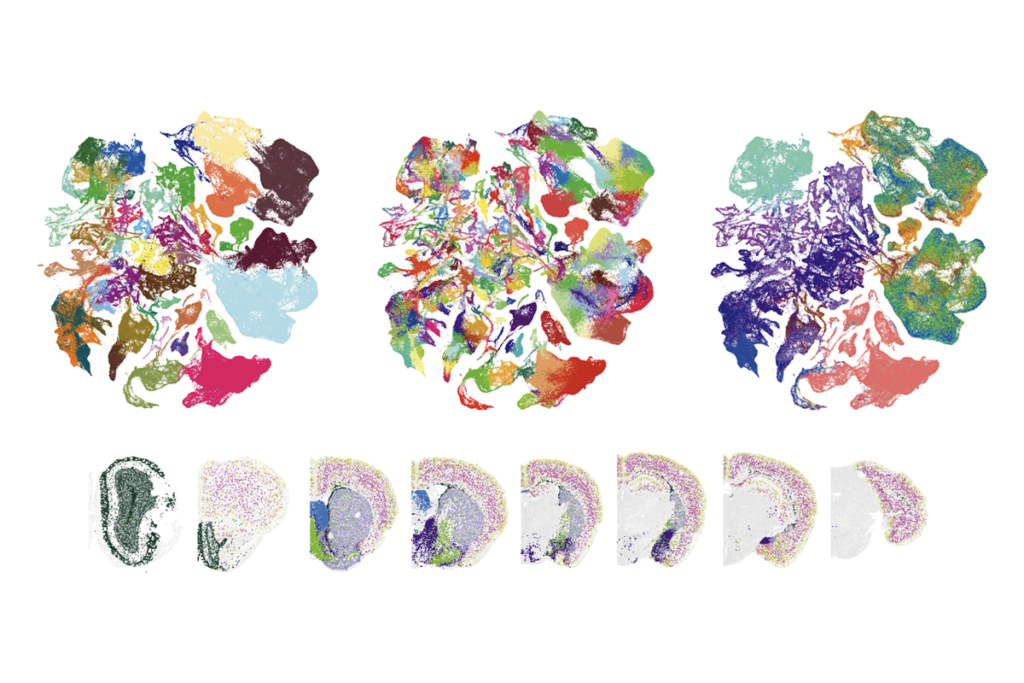
Constellation of studies charts brain development, offers ‘dramatic revision’
The atlases could pinpoint pathways that determine the fate of cells linked to neurodevelopmental conditions.
Protein tug-of-war controls pace of synaptic development, sets human brains apart
Human-specific duplicates of SRGAP2 prolong cortical development by manipulating SYNGAP, an autism-linked protein that slows synaptic growth.
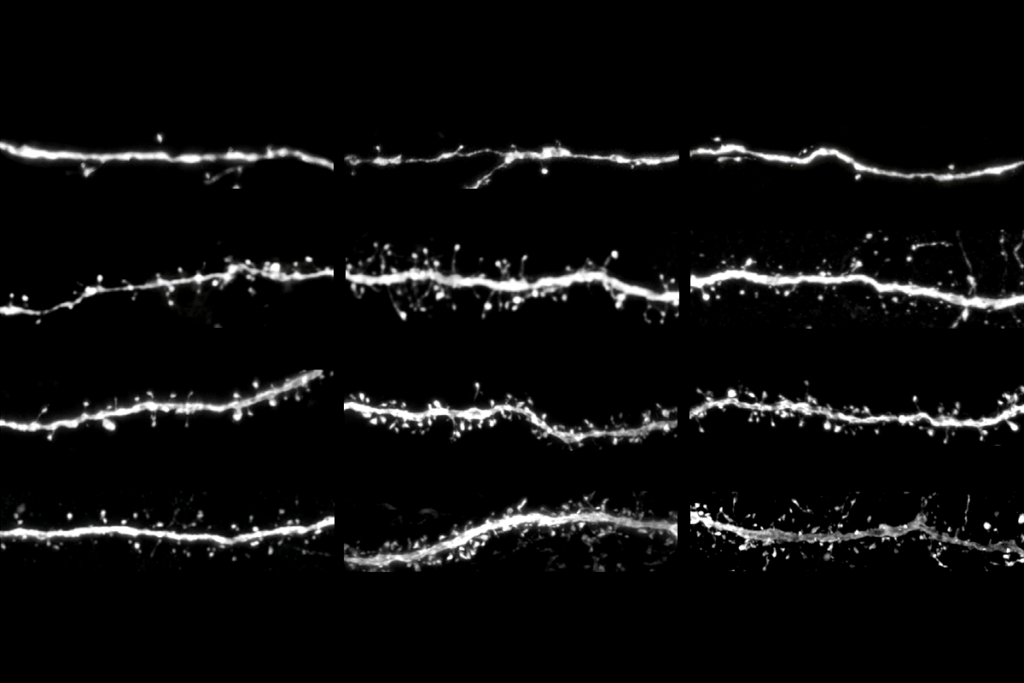
Protein tug-of-war controls pace of synaptic development, sets human brains apart
Human-specific duplicates of SRGAP2 prolong cortical development by manipulating SYNGAP, an autism-linked protein that slows synaptic growth.
Exclusive: The 23 studies the FDA based its expanded leucovorin label on
The studies include 46 people, mostly toddlers, who have cerebral folate deficiency due to variants in a folate transporter.

Exclusive: The 23 studies the FDA based its expanded leucovorin label on
The studies include 46 people, mostly toddlers, who have cerebral folate deficiency due to variants in a folate transporter.
Microglia nurture young interneurons
The immune cells secrete a growth factor that “sets the supply of GABAergic interneurons in the developing brain.”
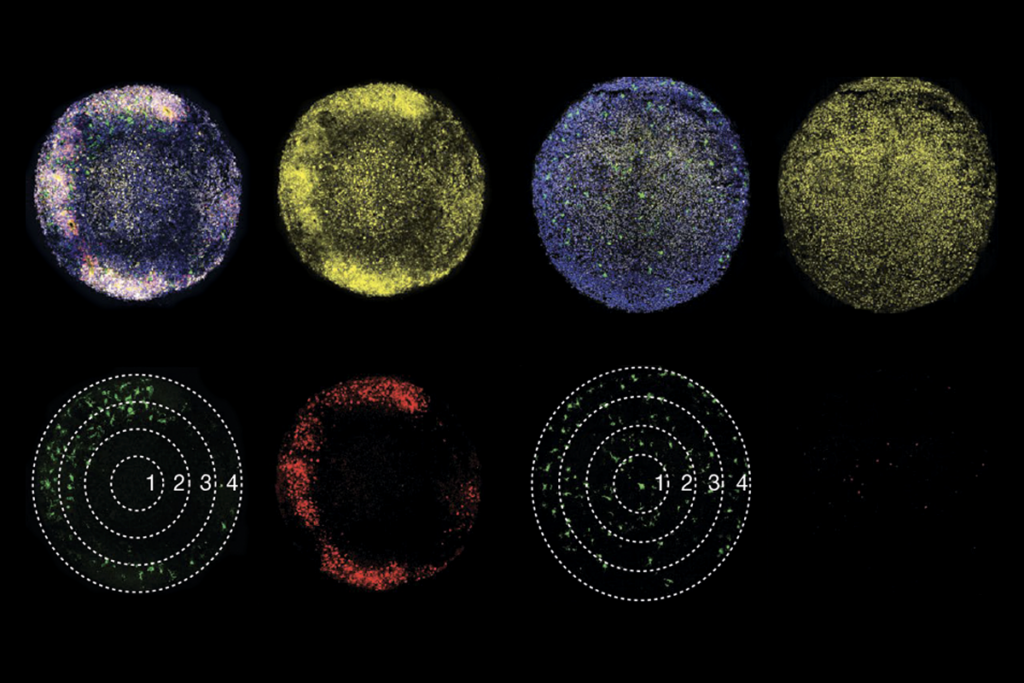
Microglia nurture young interneurons
The immune cells secrete a growth factor that “sets the supply of GABAergic interneurons in the developing brain.”
Genetic background steers PTEN syndrome traits
People with the syndrome, caused by variants in the gene PTEN, often have autism or cancer, or both, but it depends on the genetic diversity encoded in the components of distinct cell signaling pathways, according to a new study.

Genetic background steers PTEN syndrome traits
People with the syndrome, caused by variants in the gene PTEN, often have autism or cancer, or both, but it depends on the genetic diversity encoded in the components of distinct cell signaling pathways, according to a new study.
In vivo veritas: Xenotransplantation can help us study the development and function of human neurons in a living brain
Transplanted cells offer insight into human-specific properties, such as a lengthy cortical development and sensitivity to neurodevelopmental and neurodegenerative disease.
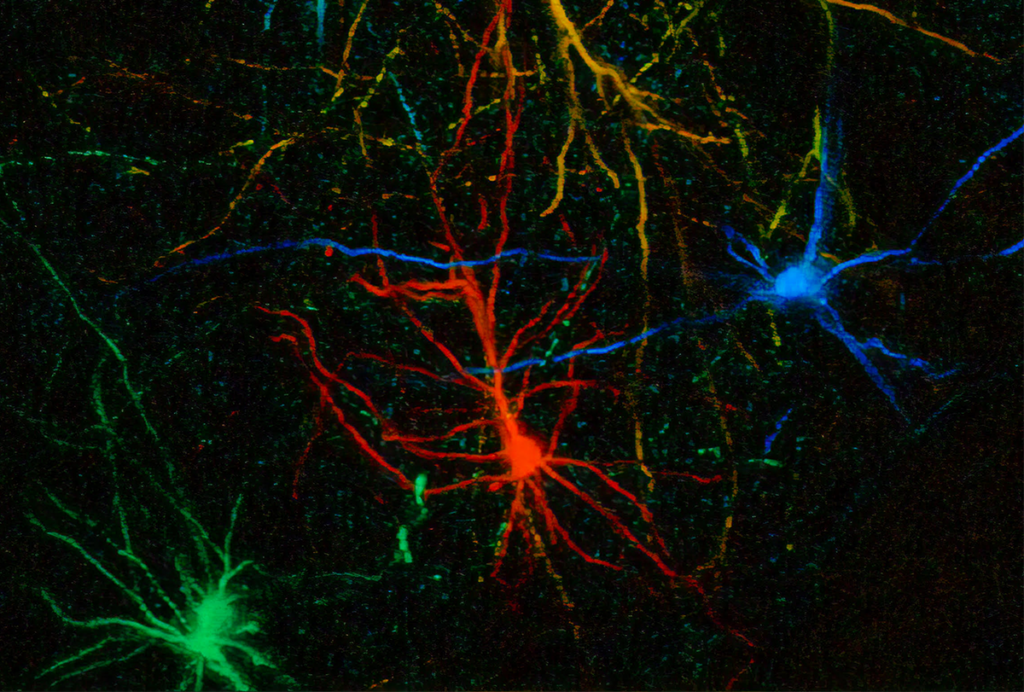
In vivo veritas: Xenotransplantation can help us study the development and function of human neurons in a living brain
Transplanted cells offer insight into human-specific properties, such as a lengthy cortical development and sensitivity to neurodevelopmental and neurodegenerative disease.
Many autism-linked proteins influence hair-like cilia on human brain cells
The finding may help explain autism’s association with multiple co-occurring conditions that involve cilia defects.
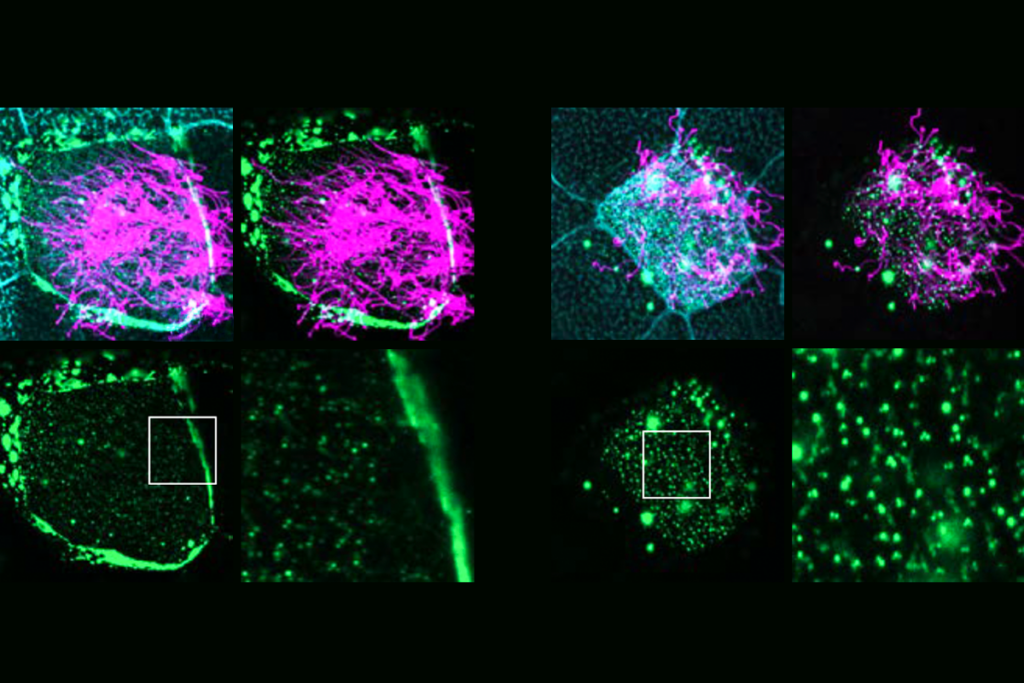
Many autism-linked proteins influence hair-like cilia on human brain cells
The finding may help explain autism’s association with multiple co-occurring conditions that involve cilia defects.
Impaired molecular ‘chaperone’ accompanies multiple brain changes, conditions
Rare genetic variants in a protein-folding complex contribute to a spectrum of phenotypes that encompass brain malformations, intellectual disability, autism and seizures, according to a new “hallmark” study.
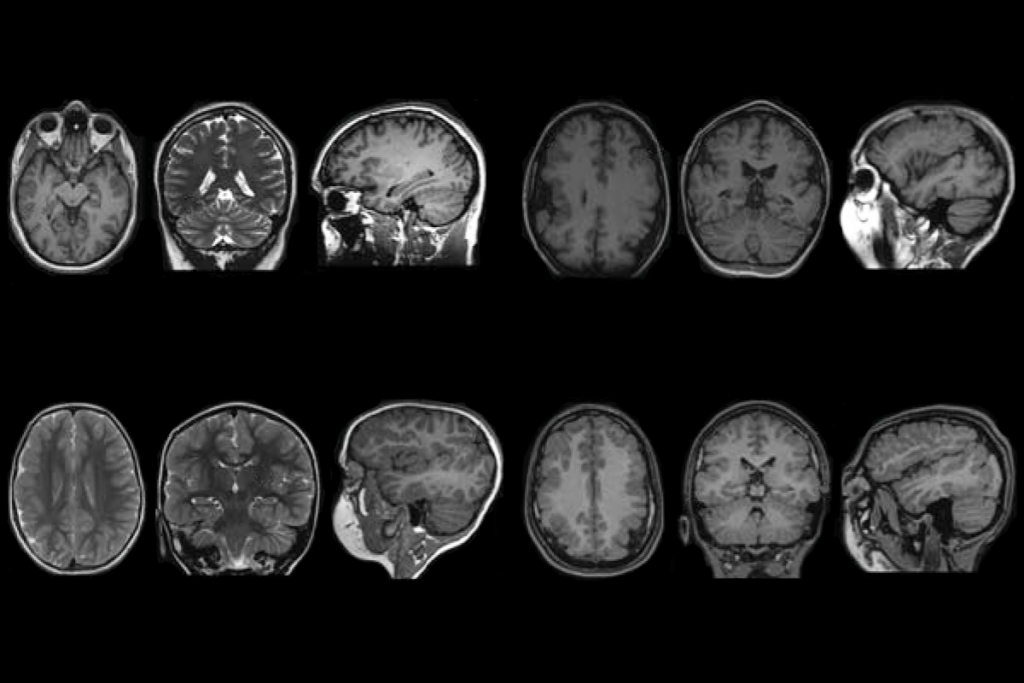
Impaired molecular ‘chaperone’ accompanies multiple brain changes, conditions
Rare genetic variants in a protein-folding complex contribute to a spectrum of phenotypes that encompass brain malformations, intellectual disability, autism and seizures, according to a new “hallmark” study.
Explore more from The Transmitter
Dendrites help neuroscientists see the forest for the trees
Dendritic arbors provide just the right scale to study how individual neurons reciprocally interact with their broader circuitry—and are our best bet to bridge cellular and systems neuroscience.

Dendrites help neuroscientists see the forest for the trees
Dendritic arbors provide just the right scale to study how individual neurons reciprocally interact with their broader circuitry—and are our best bet to bridge cellular and systems neuroscience.
Two primate centers drop ‘primate’ from their name
The Washington and Tulane National Biomedical Research Centers—formerly called National Primate Research Centers—say they made the change to better reflect the breadth of research performed at the centers.

Two primate centers drop ‘primate’ from their name
The Washington and Tulane National Biomedical Research Centers—formerly called National Primate Research Centers—say they made the change to better reflect the breadth of research performed at the centers.
Post-infection immune conflict alters fetal development in some male mice
The immune conflict between dam and fetus could help explain sex differences in neurodevelopmental conditions.

Post-infection immune conflict alters fetal development in some male mice
The immune conflict between dam and fetus could help explain sex differences in neurodevelopmental conditions.